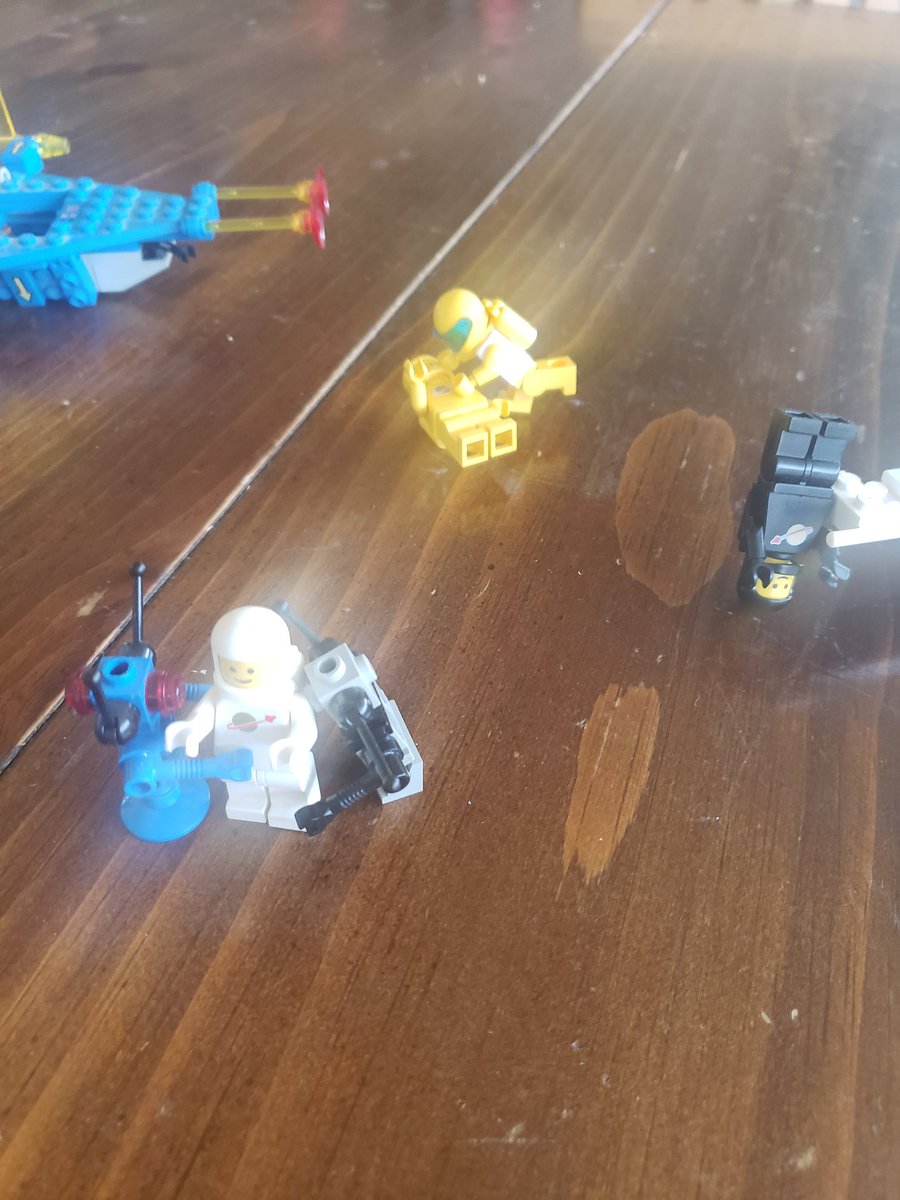"ACAB!!!" the anarchists shout over the subspace network as they bravely dive their homemade fighter craft at the massive police battlecruiser 

The Space Police have bulked up their armaments, due to years of surplus military equipment getting dumped on the market after the war against the Star Wars Lego sets 

Independent investigations have caught the Space Police keeping prisoners in highly inhumane conditions, in flagrant violation of interstellar conventions 

This is Steve, from the planet New Portland. He built his fighter with spare parts from his dad's out-of-business service station. In his spare time he enjoys hoverbiking, asteroid climbing, and campaigning for robots' rights. 

This is Janice, Steve's sort-of-ex (it's complicated). When she's not battling interstellar fascism, she enjoys making holograms of her cat, earning money as a zero-G burlesque dancer, and discussing YA literature online. 
https://twitter.com/Noahpinion/status/1474831445508112390/photo/1

This is Space Police Sergeant Jim Jackendorf. He loves his job, even though he believes the government has been taken over by slug-beings from the Magellanic Clouds. He's definitely not species-ist, BUT 

The anarchists unfortunately lost this ship when it turned out that a design flaw led to a zeon missile being mounted directly in the path of the ship's main laser cannon... 😫 

But despite setbacks, the nimble anarchists eventually outmaneuver the slower, bulkier Space Police cruisers.
It helps that the Space Police are only given 45 minutes of training before starting on the job.


It helps that the Space Police are only given 45 minutes of training before starting on the job.



Even the Space Police's hideously expensive battlecruiser is outmatched when the anarchists receive timely reinforcements from the Blacktron Bloc 





But the thrill of the anarchist victory is short-lived, after they fall to infighting over whether using robots in space combat represents uncompensated extraction of their labor... 



And despite their humiliating defeat, the Space Police have the last laugh, when New Portland elects Baron Konrad von Dethkampe as their new prelate, and he raises the Space Police budget by 1200%!
(end)
(end)

• • •
Missing some Tweet in this thread? You can try to
force a refresh










